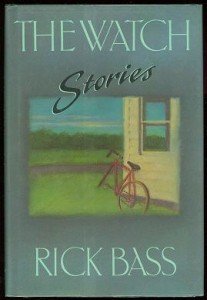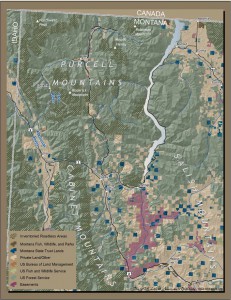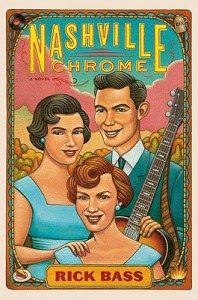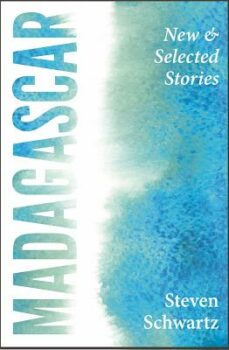 Not long after my twenty-eighth birthday, I wrote my first story. I knew little about literature; I had, in fact, struggled with my few required college English courses (why, I wondered, did Madame Bovary’s bouquet have to be anything more than a bunch of flowers?). But somewhere in the inky spew of that first draft, I became a convert to the possibilities and challenges of the blank page. Conscious of my stunted background, I revisited Fitzgerald, Hemingway, and Chekov. I devoured the limited offerings of my local library. On a gray, bookstore afternoon I stumbled upon a recently published collection: The Watch, by Rick Bass. Leaning against the shelf, I studied the first few pages and discovered myself hooked once again. By the end of the week, I’d read it cover to cover. Then I read it a second time. A third.
Not long after my twenty-eighth birthday, I wrote my first story. I knew little about literature; I had, in fact, struggled with my few required college English courses (why, I wondered, did Madame Bovary’s bouquet have to be anything more than a bunch of flowers?). But somewhere in the inky spew of that first draft, I became a convert to the possibilities and challenges of the blank page. Conscious of my stunted background, I revisited Fitzgerald, Hemingway, and Chekov. I devoured the limited offerings of my local library. On a gray, bookstore afternoon I stumbled upon a recently published collection: The Watch, by Rick Bass. Leaning against the shelf, I studied the first few pages and discovered myself hooked once again. By the end of the week, I’d read it cover to cover. Then I read it a second time. A third.
More than twenty years have passed, and I now consider myself blessed to have discovered my art form in this world of endless distractions. Recently, I returned to The Watch, wary of the potential tarnish of time (the sensibilities of youth don’t always survive adulthood, and for that, I guess I should be thankful), but I was relieved to discover The Watch understood me as much at fifty as it did at twenty-eight. The twenty-eight-year-old was overwhelmed by Bass’s language and laid-bare heart. The fifty-year-old still admires these wonders, but he now also considers these pages with a craftsman’s eye, a search for structure and links and motifs, and armed with this mindset, I received my tardy epiphany. These stories, although stunning individually, actually constitute a single whole, a complexly cohesive vision projected through ten lenses. In The Watch, Bass achieves that rarest of literary feats: the creation of a real yet utterly unique fictional landscape.
I’m an east-coaster, born and bred. I’ve never seen the Mississippi River, my world choked by the concrete of cities and suburbs. Rick Bass took me to Utah’s plateaus and Montana’s Yaak valley. He showed me wide skies. He planted my feet upon forsaken terrain. Through sentences penned with a contagious sense of wonder, I heard the howl of killing winter winds and the swirl of deep canyon rivers. He transformed Mississippi’s swampy summer into a romantic’s dream. And in an inspired ratcheting of stakes, Bass populated these places with creatures plucked from backwoods mythology. Injured mules and wild horses. Dwarf bears. Frozen elk. A cat that ate only live pigeons. Snapping turtles and feral hounds. Fossilized remains of reptiles that fancied themselves birds. A twenty-three pound pet bass named Shack.
Into these wilds, he cast his characters, and the real spark of these pieces is born when their wills strain against Bass’s mystical backdrops. Each of these stories is about a place—and the men strong enough to live there. Bass presents us with a Zeus-like view of mortals and their follies. Study the Houstonite made rich by oil strikes yet who now finds himself adrift in a world of privilege. Behold the young man who cherishes his stashed bottles of original Coca Cola but loses the girl he loves. See the mountain man ride a wild moose.
And love! There is love! Bass’s America aches with women so passionate they halt, for a few beguiling moments, the forward plod of life’s melancholy march. Strong and beautiful and damaged, they cry for blood at bullfights, engage in cabin-fever induced boxing matches, cheer the loudest for their sports heroes, wander naked in the desert. Listen to the narrator of “Mississippi” describe his girl: “When she kissed you it was like going swimming in the ocean on a hot day with a bunch of people standing around applauding.” With a single sentence, Bass pierces his reader’s heart; with a single sentence, he takes nature and balances it with love, letting us know these forces, at least in his world, constitute mysterious and beautiful equals, each ready to claim the men who wander into their domains.
Desire and struggle, redemption and recklessness and loss—they’re all on display in this book, a menagerie of the human condition corralled in a landscape too wild to be pinned down on any map. In my life The Watch presented doors of possibilities, doors I’m still opening and marveling at all these years later. Perhaps another ten years will pass before I return to these wonderful tales. I’ll look forward to that day, hoping to understand a little better what they said to the young man who dreamed of being a writer so long ago.








